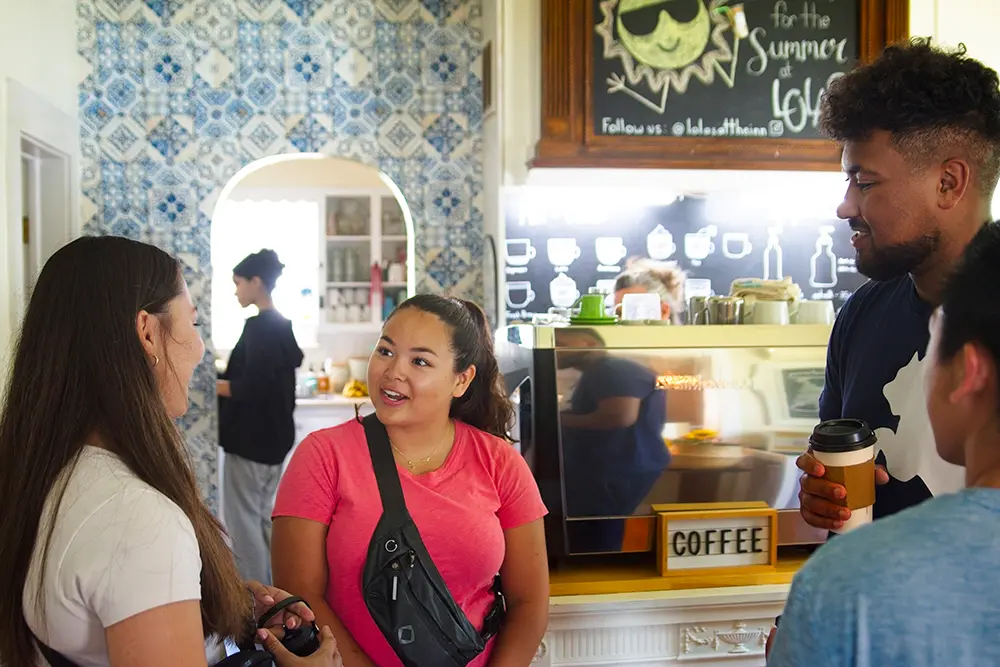Open to students of the Marion campus, the Luther Lee Scholars (LLS) program is a full-tuition scholarship cohort for students who want to grow in intercultural leadership. The LLS community is made up of students, faculty and staff eager to make a difference, share their experiences, and engage in meaningful dialogue.
The LLS experience offers students a robust academic and co-curricular experience to develop students as scholar-leaders in the four pillars of the LLS program.
The LLS co-curricular and academic experience exists as a partnership between the John Wesley Honors College and the Intercultural & Global Office, which integrates:
LLS students receive a full-tuition scholarship;

LLS is open to Marion Campus students who meet the academic requirements and one of the following criteria. Additionally, the student must be a U.S. Citizen, or eligible non-citizen defined by the Free Application for Federal Student Aid (FAFSA):
Meet one of the following:
We are looking for students who are passionate about the work of diversity, equity and justice. Students who do not meet one of the following requirements but are interested in applying should write a letter of petition and communicate: academic preparation, intellectual character, vocational objectives and reasons for interest. Send by email to jeff.tabone@indwes.edu or by mail to:
INDIANA WESLEYAN UNIVERSITY
John Wesley Honors College
c/o Jeff Tabone
4201 S. Washington St.
Marion, IN 46953
Luther Lee was an abolitionist minister in the Methodist Episcopal Church who left that denomination in the 1840s for its refusal to take a firm stand against slavery. From this dispute over slavery, Lee and other abolitionists eventually helped bring into existence a new denomination - the Wesleyan Church. The Wesleyans of the nineteenth century sought to reform society by pursuing social holiness.
For Luther Lee and the early Wesleyans, social holiness meant not only condemning racial slavery in the United States, but also supporting women’s rights. In fact, the Seneca Falls Convention of 1848--the first conference on women’s rights in the United States--took place in a Wesleyan Church. And when Antionette Brown became the first woman ordained by a denomination to preach in America, the Wesleyan Luther Lee gave the sermon at her ordination service.
The pursuit of social holiness also informed the way early Wesleyans treated the poor. At a time when many churches reserved the best seats in their sanctuaries to those who could pay, the Wesleyans opened all their pews to anyone who came through their doors. Meanwhile, Luther Lee and the other early Wesleyans also rejected the adornment of riches, choosing instead to live and dress simply so as not to ostracize the poor with displays of wealth.
John Wesley once said that there is no holiness but social holiness and these early founders of the Wesleyan church—men and women like Luther Lee—took this idea to heart and tried as best they could to live it out. We are pleased to name this scholarship in honor of Luther Lee and are eager to help equip Luther Lee Scholars to carry forward the work of Christ-centered justice and reconciliation around issues of race, class, and gender that their namesake started more than a century ago.